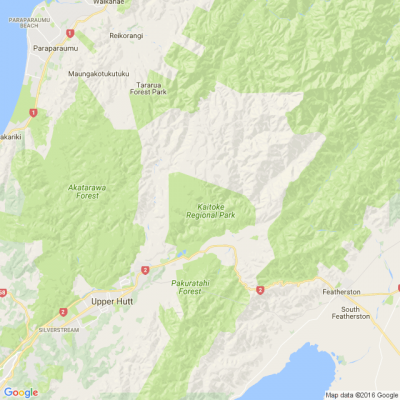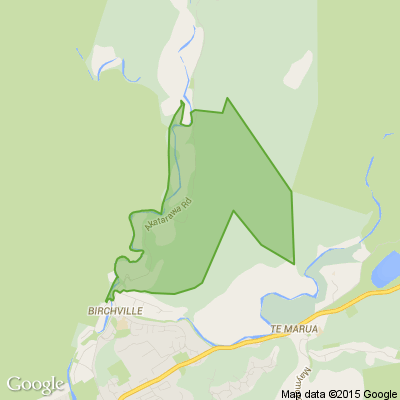Kiwis are thinking outside of the box to buy
While an increasing number of Kiwis believe they will never own a home, others are thinking outside the box to secure their slice of paradise.
More than one-in-five (22%) New Zealanders across all age groups say they don’t believe they’ll live in a property they own in their lifetime*. The research, commissioned by realestate.co.nz, shows that potential buyers are becoming increasingly pessimistic. Only 19% of those surveyed in November 2017 believed they’d never own a home.
But those determined to buy are showing that, in 2018, getting on the property ladder requires some number eight wire mentality – or being fortunate enough to have support from family.
“The dream of home ownership is still strong. For Kiwis, it’s much more than just an asset class. We have a deeply entrenched emotional connection to owning our own home,” says realestate.co.nz spokesperson Vanessa Taylor.
“To get to that place, people are thinking more laterally,” she says.
Here are four ways Kiwis are thinking outside the box to buy a home:
POOLING RESOURCES TO GET A DEPOSIT
You don’t have to be a couple or an individual buying alone when purchasing a first home. We’re seeing an increasing number of buyers pooling deposit funds together with friends or another couple.
It’s important to think carefully about this sort of arrangement. Consider how long all parties would be willing to stay in the property (a minimum co-habitation period) and the minimum amount of time before one of you can trigger an exit clause.
“With it taking a longer time to sell a house in the current market**, home buyers do have more time to make a decision or put in legal arrangements for groups of friends to co-own,” explains Vanessa.
Do your research on the property and consider what it might be worth in, for example, five years’ time. Will there be enough capital gain for you to sell and split the profits, in order to reinvest in your own separate homes?
The timeline for the agreement should align with each party’s own personal goals – for example, if one party wants to have children within the next five years, how would that impact the co-habitation arrangements?
It’s important to have a written agreement, so everyone is on the same page.
LATERAL THINKING FOR AN AFFORDABLE MORTGAGE
There’s also the challenge of actually paying off the mortgage, which can put a strain on finances. An option is to re-think your living arrangements.
On one hand, many people choose to buy to get away from the flatties, but paying back a large loan on your own sometimes isn’t an easy feat. Getting in flatmates can significantly cut the cost of monthly mortgage repayments.
“We know of one young couple who live in the self-contained garage on their property and rent out the three-bedroom home on the front of the site. By living on the property, they can also ensure that it’s well looked after,” says Vanessa.
Another benefit is, with flatmates to help pay the bills, buyers can sometimes afford a home that better aligns with their long-term goals.
For example, a couple on their own may only be able to afford mortgage repayments for a two-bedroom home but, with flatmates in the equation, can step right into a three- or four-bedroom property.
This means they’re starting off higher on the property ladder and won’t have to sell and upsize in a few years’ time when circumstances change, such as starting a family.
These types of arrangements can also help flat hunters who are struggling to find somewhere to rent in the current market, where rentals are in high demand.
LIVING LEGACIES
An increasing number of parents or grandparents are choosing to give money to their offspring when they most need it, not when they die. These ‘living legacy’ contributions could be a cash gift towards a home deposit or parents using their own home as security on a loan.
Gifting – a parent, grandparent or another person can gift cash towards a home deposit, either as a loan or with a no-repayment obligation. Even between family, it’s a good idea to get independent legal advice, especially if the gift has to be repaid over time.
Guarantees – parents/grandparents can offer part of their own property as security against a loan. No actual cash is exchanged, but the lender or bank will require a written guarantee from the owners of the home that’s being used as security. Again, it’s important for both parties to get independent legal advice.
Of course, these options aren’t for everyone, Vanessa explains.
“However, the reality is that there’s a relatively small percentage of people who are in a position to do this and it doesn’t help those whose families can’t afford to do this or who have been life-long renters,” she says.
It’s important for all buyers to look closely at the government grants or support they may be eligible for, such as KiwiSaver, the Welcome Home Loan, a Kāinga Whenua loan, Housing New Zealand’s FirstHome scheme or KiwiBuild.
Poll: Should the government levy industries that contribute to financial hardship?
As reported in the Post, there’s a $30 million funding gap in financial mentoring. This has led to services closing and mentors stepping in unpaid just to keep helping people in need 🪙💰🪙
One proposed solution? Small levies on industries that profit from financial hardship — like banks, casinos, and similar companies.
So we want to hear what you think:
Should the government ask these industries to contribute?

-
58.3% Yes, supporting people is important!
-
25.5% No, individuals should take responsibility
-
16.2% ... It is complicated
A Neighbourly Riddle! Don’t Overthink It… Or Do?😜
Do you think you know the answer? Simply 'Like' this post if you know the answer and the big reveal will be posted in the comments at 2pm on the day!
If you multiply this number by any other number, the answer will always be the same. What number is this?

Wheelchair Needed
Hi, there fellow people of my community, I'm currently looking for a wheelchair for my longtime patient as the older he gets the less mobility he has, if anyone knows of a wheelchair for Free or Cheap that would be greatly appreciated. Please txt me or email. 022-176-3899







 Loading…
Loading…




